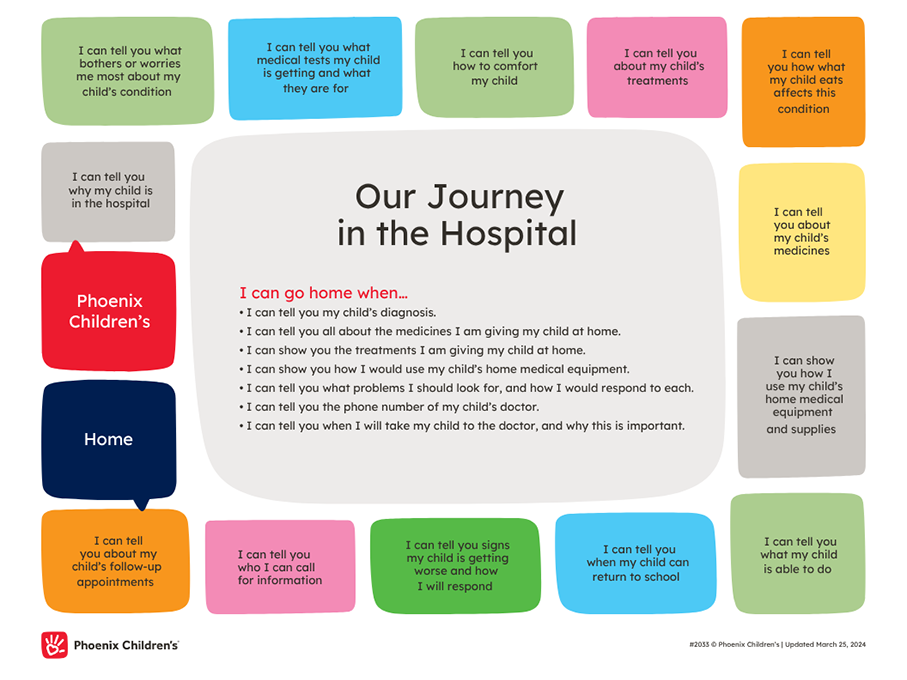Families often get a lot of information all at once when their child is in the hospital. We know it’s hard to remember everything, so The Emily Center created a tool called the Journey Board to help.
To request a Journey Board, talk to your hospital nurse.
What is a Journey Board?
A patient Journey Board is a resource that helps you learn about your child’s care. It’s a paper road map. Each square on the map has one topic, such as:
- “I can tell you about my child’s diagnosis.”
- “I can tell you about my child’s medicines.”
- “I can show you how to use medical equipment at home.”
You will talk about these topics with your care team while your child is in the hospital, so you know what to do before you go home.
Here’s what your Journey Board might look like:

Why Journey Boards Matter
Journey Boards are important because when it’s time to take your child home, we want to make sure you:
- Understand your child’s condition
- Know what care to give at home
- Can spot signs of problems and respond
- Know who to call with questions
With this tool, you can focus on one thing at a time, so you don’t have to remember all the details at once.
How to Use the Journey Board
Our goal is that all families receive a Journey Board when their child has an inpatient stay. Typically, your nurse or a health educator will provide the Journey Board to you. If you don’t receive a Journey Board, feel free to request one.
We offer more general Journey Board topics, such as Our Journey in the Hospital. We also offer condition- or procedure-specific Journey Boards, such as Our Journey with Autism or Our Journey in the NICU.
Every day your child is in the hospital, our medical team will talk to you about your child’s care. During these conversations, you can pick a topic on the Journey Board to learn more about and discuss with the team. You don’t have to follow the Journey Board in order and can skip or add topics as needed. The Journey Board also gives cues of what you might tell your doctor or nurse, or when to try to teach what you know back to them.
If you do not speak English, please let your nurse or doctor know, so they can request an interpreter.
